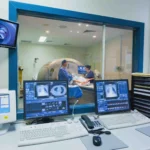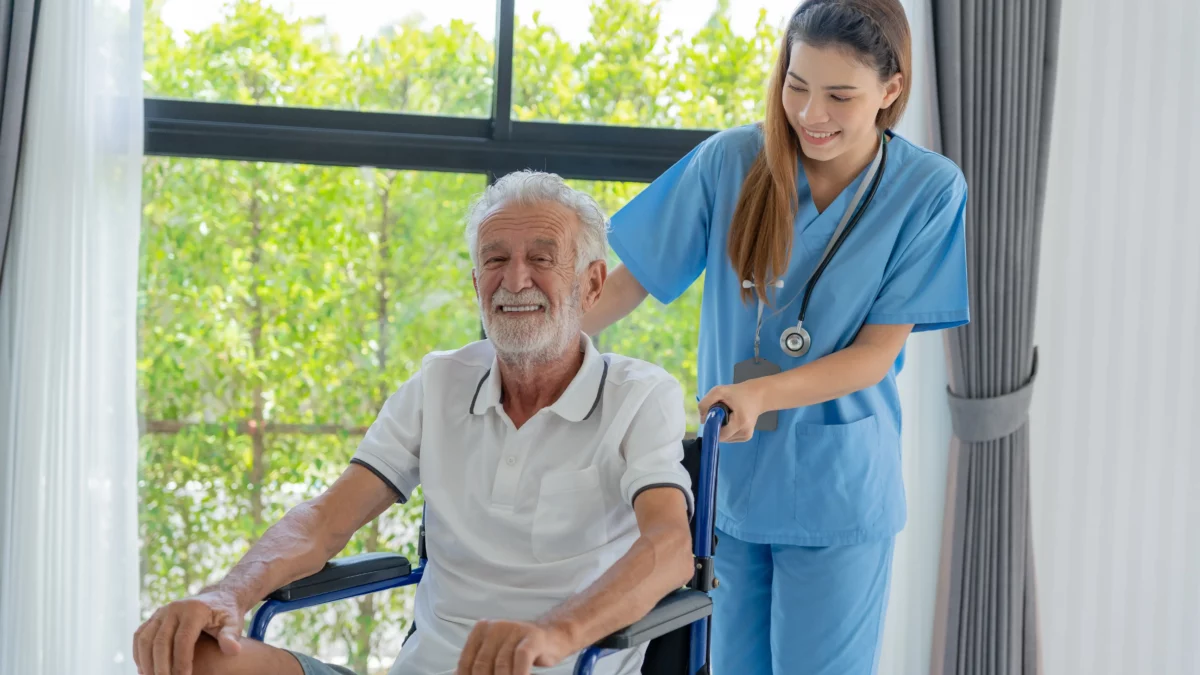
Essential Health Screenings After 50: What You Need to Know
November 24, 2024
Anti-Aging Skincare Tips: What Really Works for Mature Skin
December 24, 2024Do you have a loved one, whether they are young or old, who you feel is unsafe living at home independently? Do they have a medical condition such as Alzheimer’s and/or symptoms of dementia? Are you afraid your loved one will hurt themselves going up and down the stairs or there is uneven flooring, area rugs, or any other clutter that might impede the movements of your loved one? Are you worried because you believe they are lonely? If so, then maybe it’s time to consider a Home Caregiver.
What is a home caregiver? A home caregiver is generally defined as someone – a nurse, a therapist, or other type of medical aide who offers professional support services that will allow a person in need of this service. A person who is recovering from a medical setback or has a disability or special needs may need home caregiving. A home caregiver is crucial for such patients. The caregiver will aid in achieving the best quality of life possible for their patient.
What is a day like in the life of a home caregiver?
Let’s look at the different types of home caregivers – such as medical and non-medical — starting with a home healthcare provider and what one day in their life doing this job would be like.
- What is a Home Health Care Provider/Giver
A Home Health Care provider is also known as Medicare-Certified Home Health Care, Intermittent Skilled Care, or Visiting Nurse Services. These services are usually short-term and physician-directed.
One day in the life of a home health caregiver might include: providing physical and/or occupational therapy, and speech-language pathology. They may also perform medical social work duties such as advocating for a patient’s social and emotional needs.
Medicare and/or private insurance usually pay for home health caregiving services as long as all qualifications are met. i.e. A doctor’s orders and a clinical assessment that considers the services requested necessary. - Private Duty Nursing Care
Just like a Home Health Caregiver, a Private Duty Nurse has alternate titles including, Home-based Skilled Nursing, Long-term Nursing Care, Catastrophic Care, Tracheostomy Care, Ventilator Care, Nursing Care, Shift Nursing, Hourly nursing or Adult Nursing depending on the patient’s specific needs.
A Private Duty Nurse will care for various diseases and conditions including Traumatic Brain Injury (TBI), Spinal Cord Injury (SCI), Amyotrophic Lateral Sclerosis (ALS), and Multiple Sclerosis (MS),
Ventilator Care, Tracheostomy Care, Ostomy/Gastrostomy Care, Feeding Tube Care and Catheter Care. They will also monitor all vital signs and administer medication.
If you have a private duty nurse, payment can be made in various ways such as private pay or directly by the person receiving care. Alternatively, payment can be made via health insurance, Veterans benefits, or Workers’ compensation. - Personal Caregiver
Personal Caregivers can only provide non-medical care. They are also known as Home Health Aides, Senior Caregivers, Homemaker Caregivers, Assistive Caregivers, or Companions.
A Personal Caregiver will help with daily activities such as bathing, grooming, using the toilet, and dressing. They will help with ambulation, and transfer from bed to wheelchair or wheelchair to toilet. They will help in the preparation of meals and perform other household tasks like laundry; they will run errands, escort their patient to doctors’ appointments, and engage in hobbies and social activities. If their patient has Alzheimer’s disease, they will supervise all of their movements while they are there. Ultimately, their goal is to enable a safe and independent lifestyle for their patients.
These services are usually paid for directly by the person requiring this service or through Long-Term Care Insurance or Medicaid. Other options include Health Insurance, Veterans Benefits, and Workers’ Compensation. - Overnight, 24-Hour and Live-In Caregivers
Overnight, 24-hour, and Live-In Caregivers have similar duties as those listed above, but many of their duties are handled overnight. These caregivers are responsible for preparing the patient for bed via a regular bedtime routine such as oral and personal hygiene care. They will tuck the patient into bed, and provide companionship until the client falls asleep unless the patient prefers to be left alone. An Overnight Caregiver will also perform light housekeeping duties and provide medication reminders. More importantly, Overnight Caregivers are expected to remain awake for they are responsible for closely supervising the patient in case a medical emergency happens overnight.
A 24-hour caregiver is usually an alternative to assisted living homes and is on rotation with two or three other caregivers. They are switched out after eight to twelve hours and are different from a Live-In Senior Caregiver.
A Live-In Senior Caregiver’s responsibilities are similar to a 24-hour caregiver, however, that is not the case.
A Live-In Senior Caregiver will live in the home and simply support elderly adults in the same way with daily routines and the like. They require a bed and will spend a whole day with a patient but are allowed to sleep up to eight hours at night and are provided a four-hour break during the day. The negative side of this is that due to the eight-hour sleep requirement, your loved one will not have any supervision at night.
Pay for an Overnight Caregiver varies in most states and depends on whether or not medical services are provided.
Remember, only a doctor can prescribe a home caregiver or provider. The people providing these services are specialized clinicians who are skilled in their field.
Unfortunately, not all home caregivers offer all of the different types of home care services at once, but they will all customize care based on the individual patients’ needs.
All home caregivers have one goal in common. Their objective is to empower happier, independently living people. They will offer individual care and will provide support and peace of mind for their family members.
Home Caregivers are compassionate people who are expertly trained and are here to help family members concerned about their elderly relatives.

